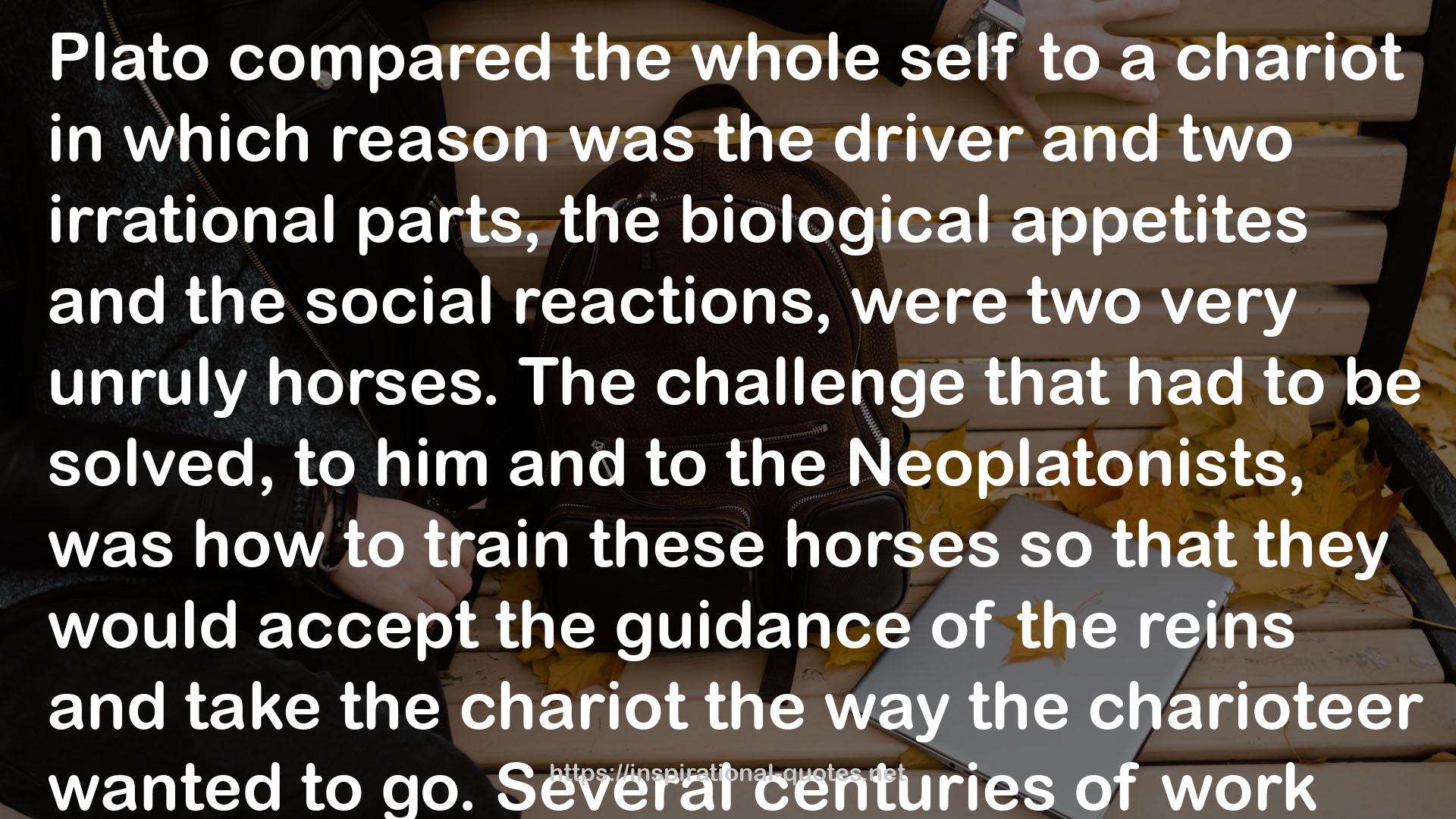" Plato compared the whole self to a chariot in which reason was the driver and two irrational parts, the biological appetites and the social reactions, were two very unruly horses. The challenge that had to be solved, to him and to the Neoplatonists, was how to train these horses so that they would accept the guidance of the reins and take the chariot the way the charioteer wanted to go. Several centuries of work went into finding the best ways to meet that challenge, and the toolkit that became central to Neoplatonism from the third century CE on – well, that’s where magic comes in.7 In the writings of Neoplatonist philosophers such as Iamblichus and Proclus, the word used was theurgy or divine work, which they distinguished from thaumaturgy, working wonders, the common or garden variety magical practice that went on in classical society in much the same way that it goes on in ours. The practice of theurgy was exactly the unpopular kind of magic I introduced in the previous chapter; in the technical language of the time, it was practiced to purify the vehicles of consciousness; in the terms I have been using, it was intended to see to it that the baboonery of biological drives and social reactions didn’t interfere with the reason and the will. "
― John Michael Greer , The Blood of the Earth: An essay on Magic and Peak Oil
